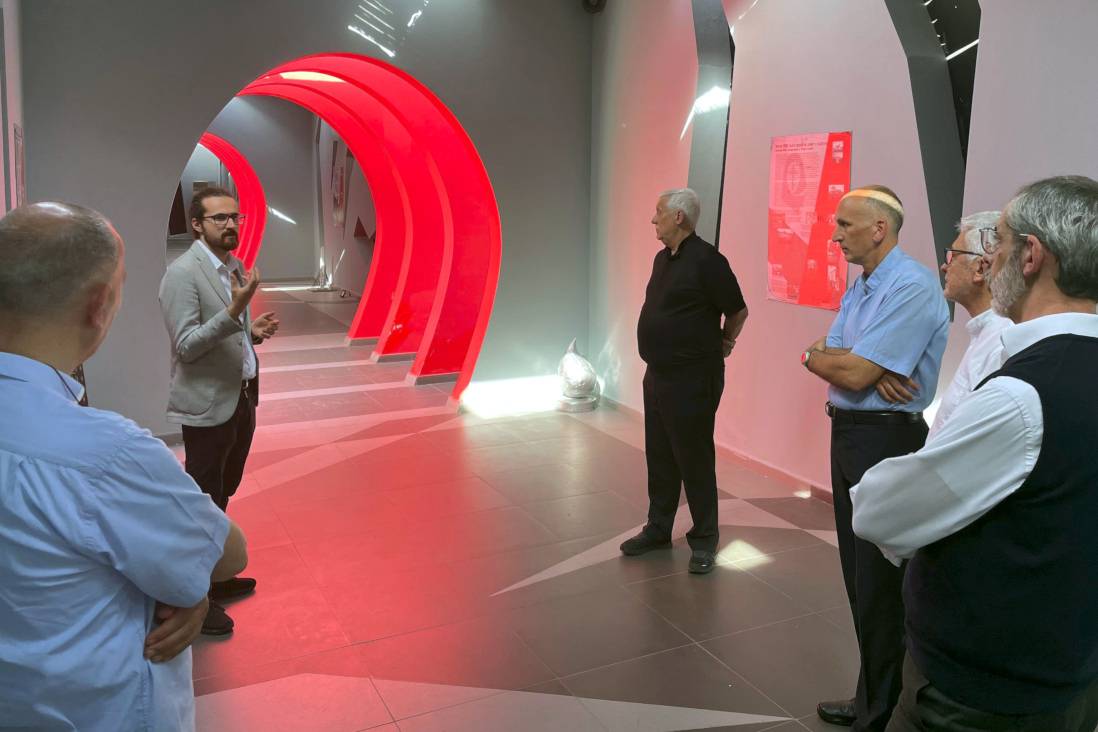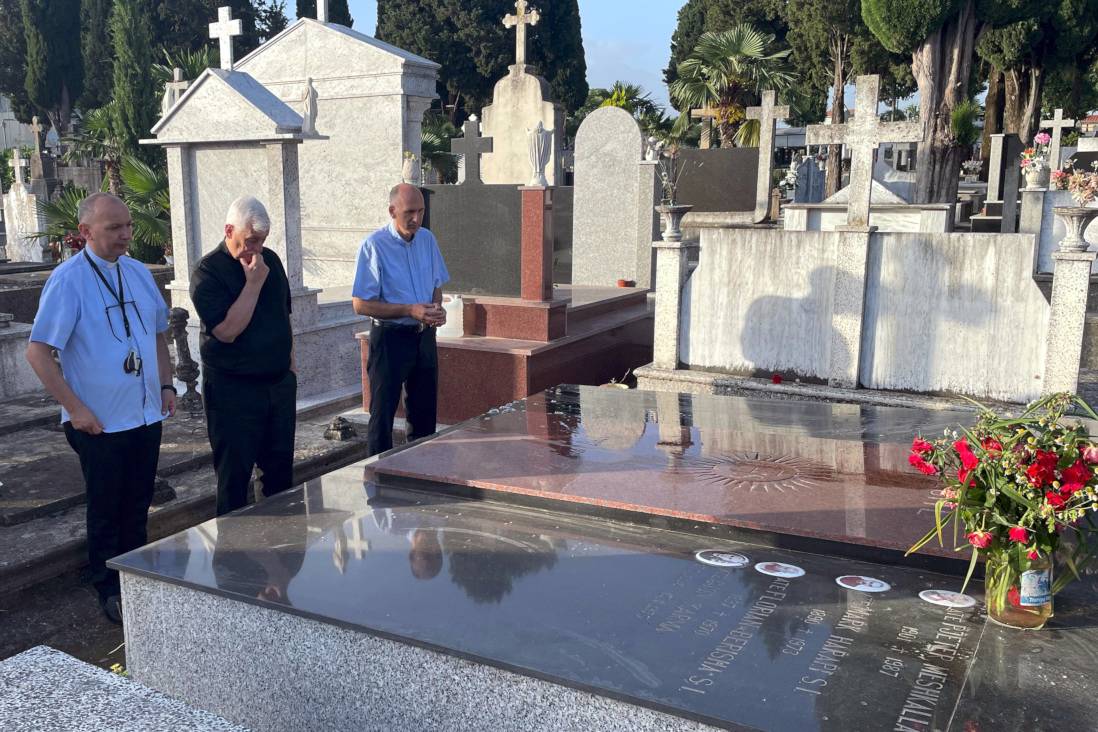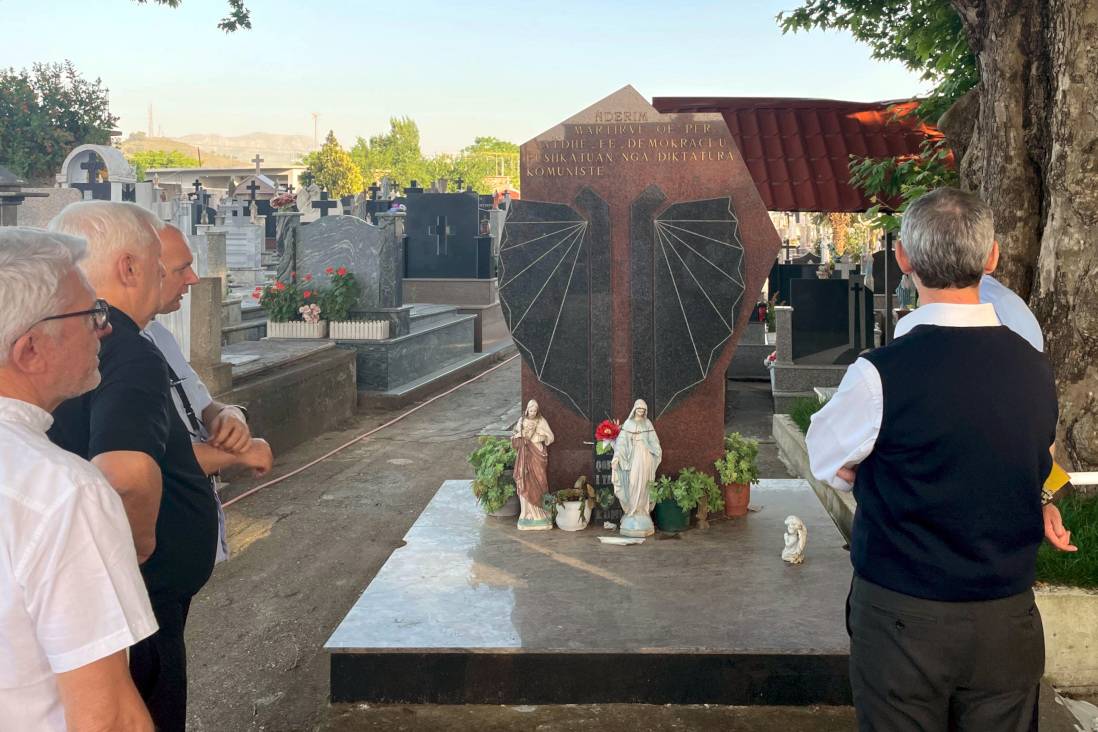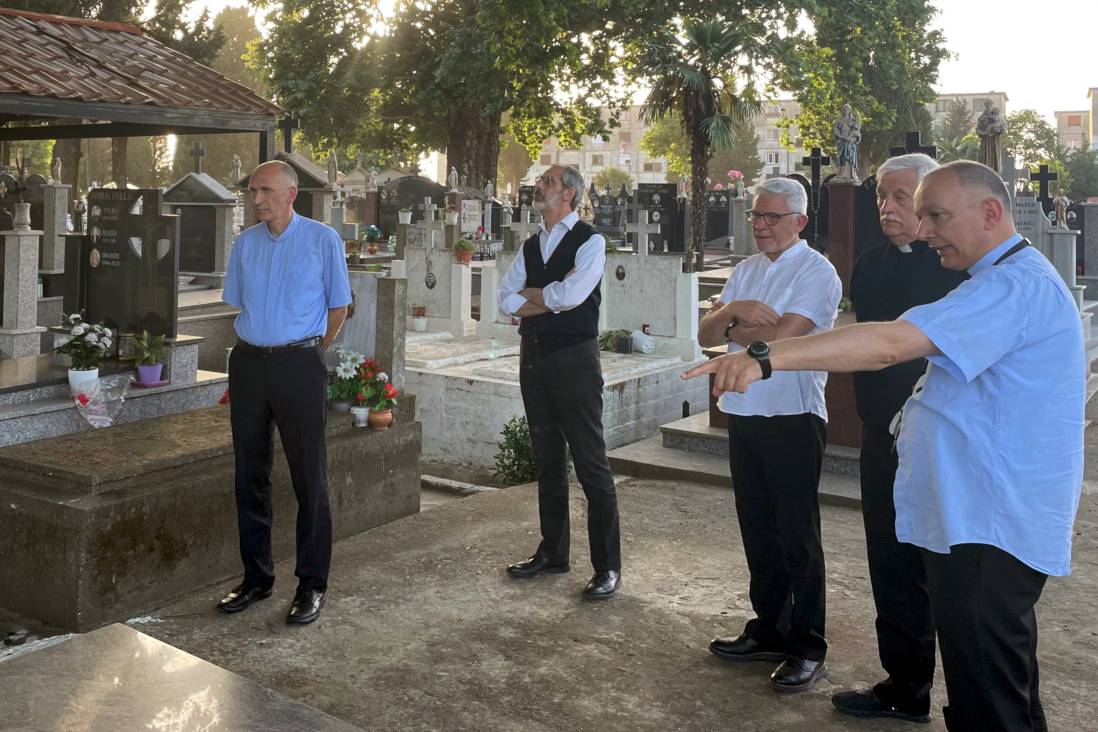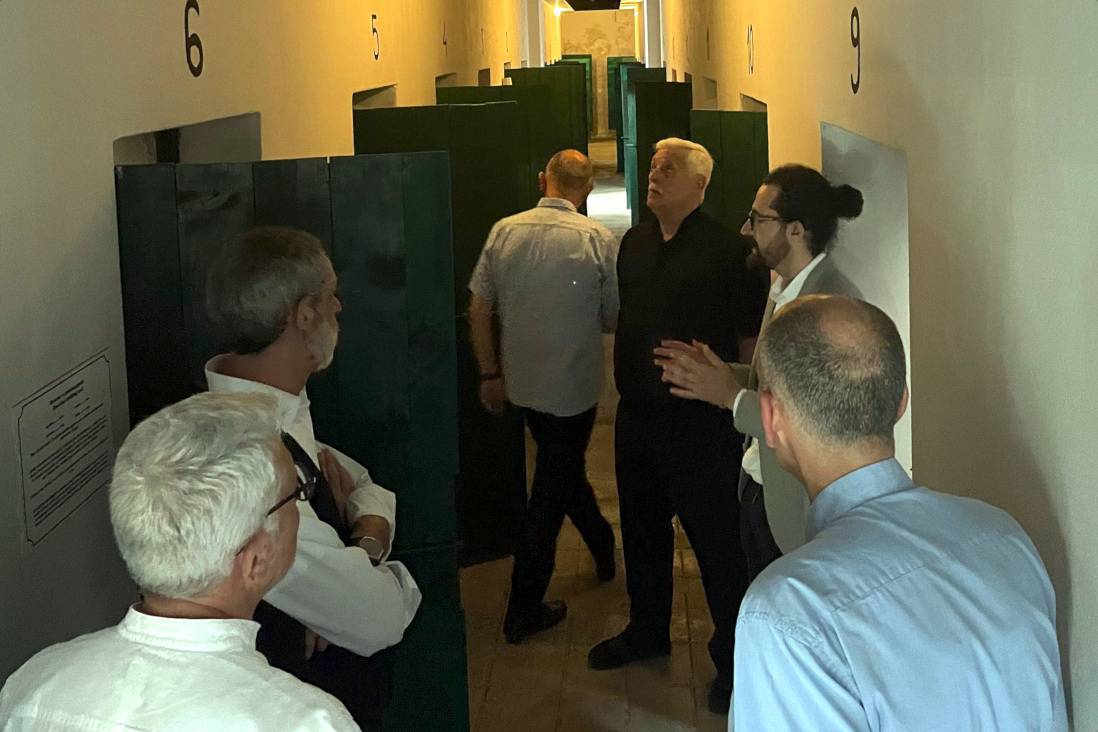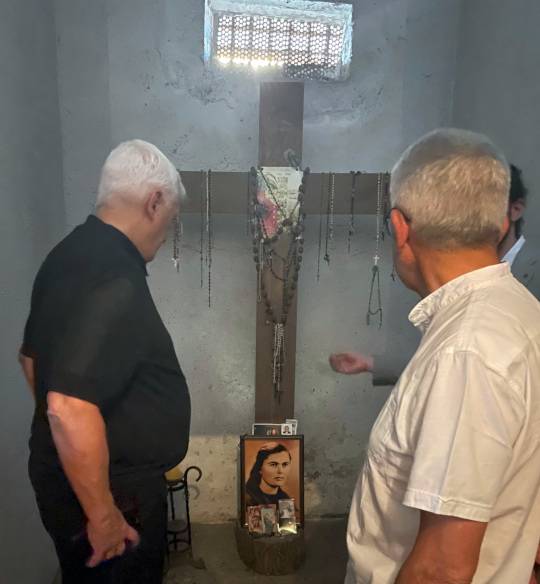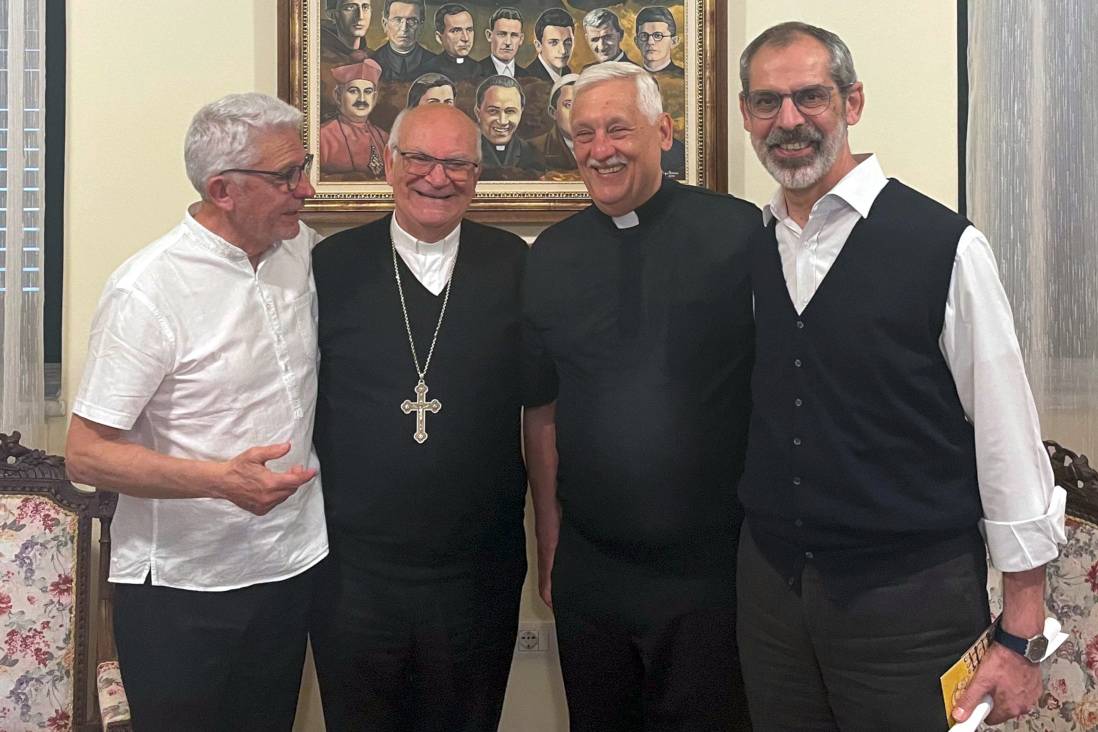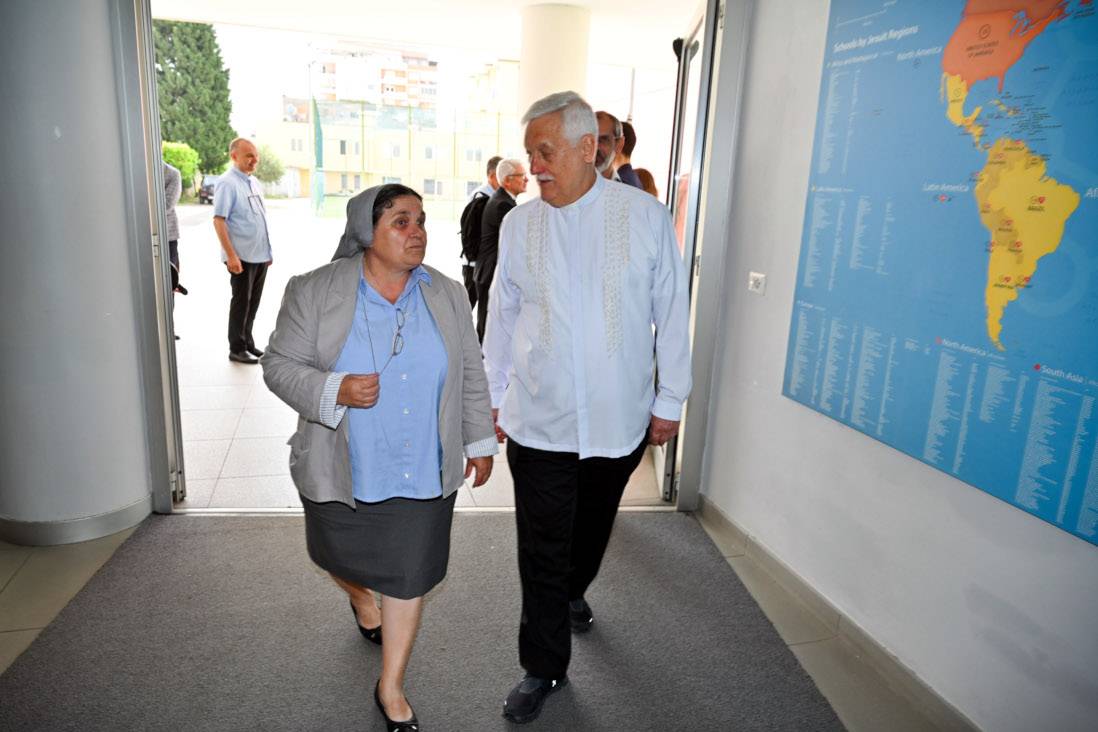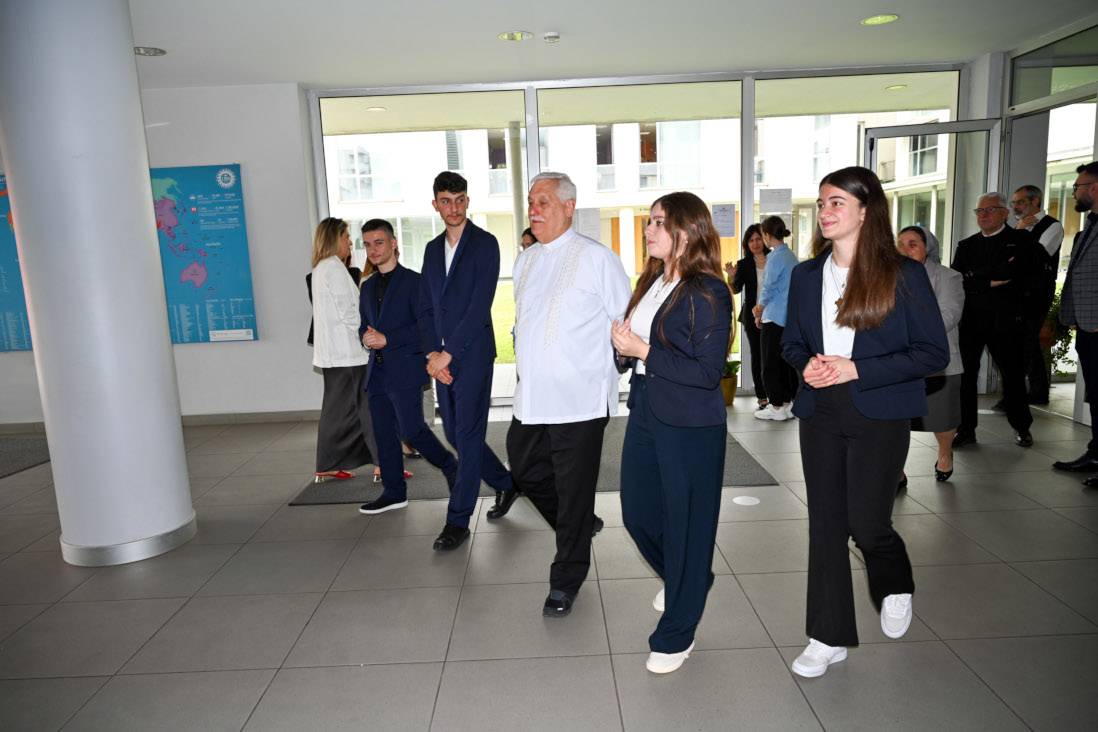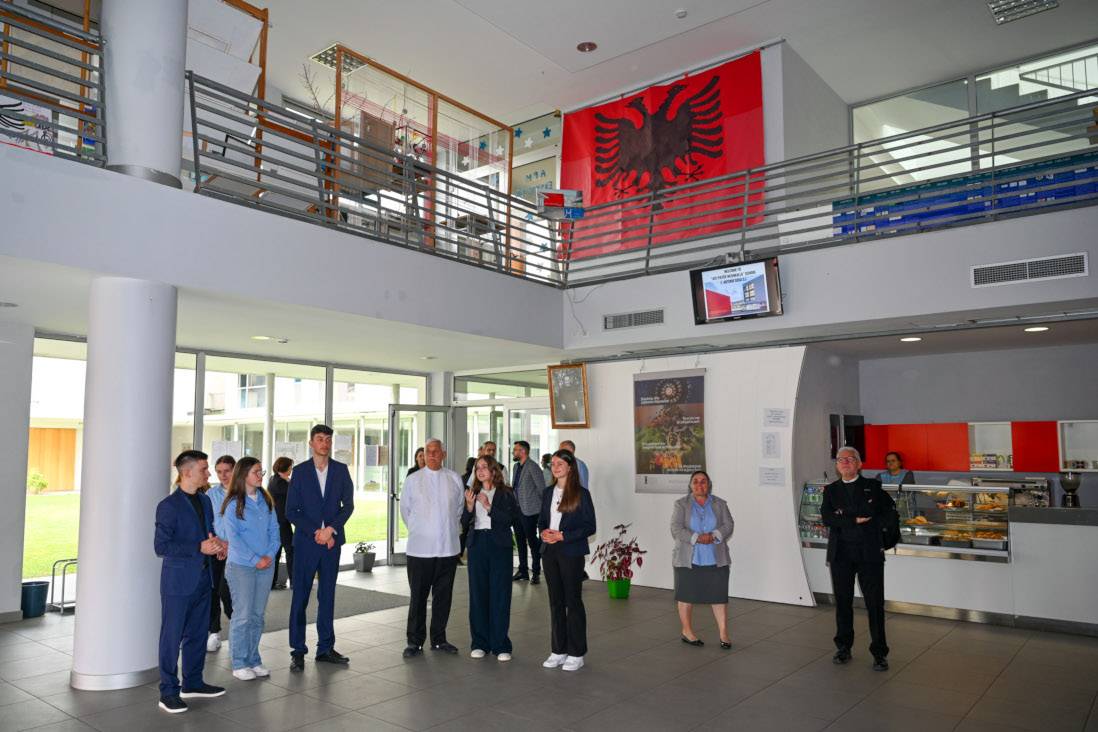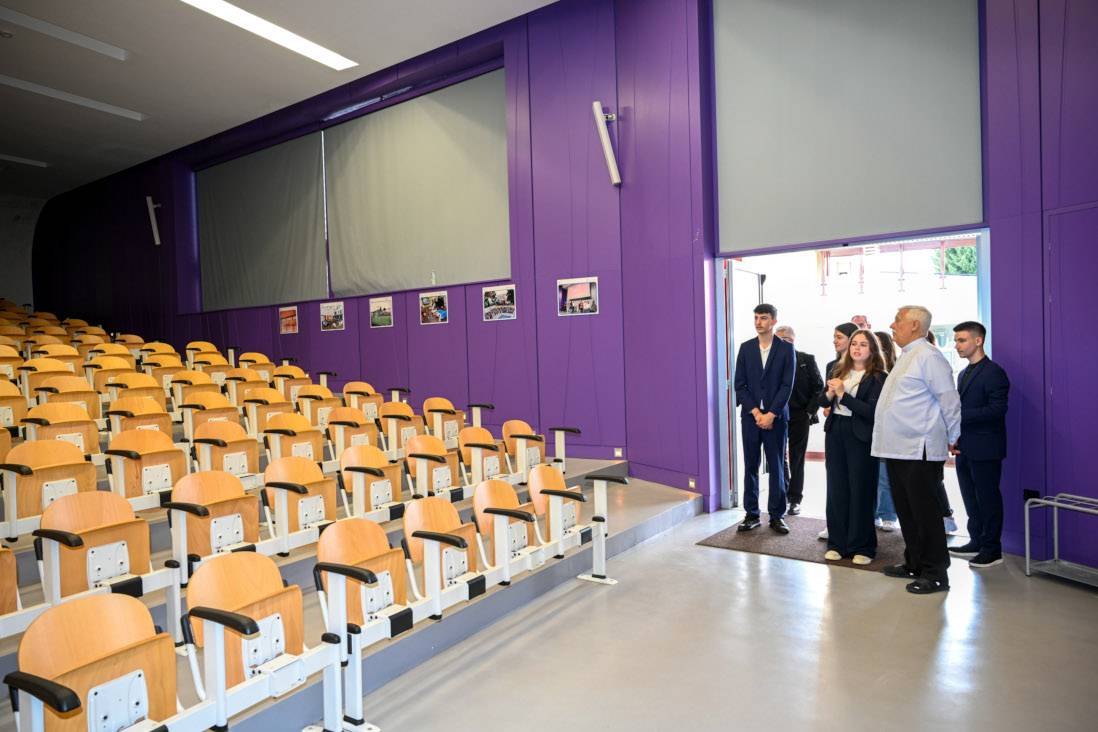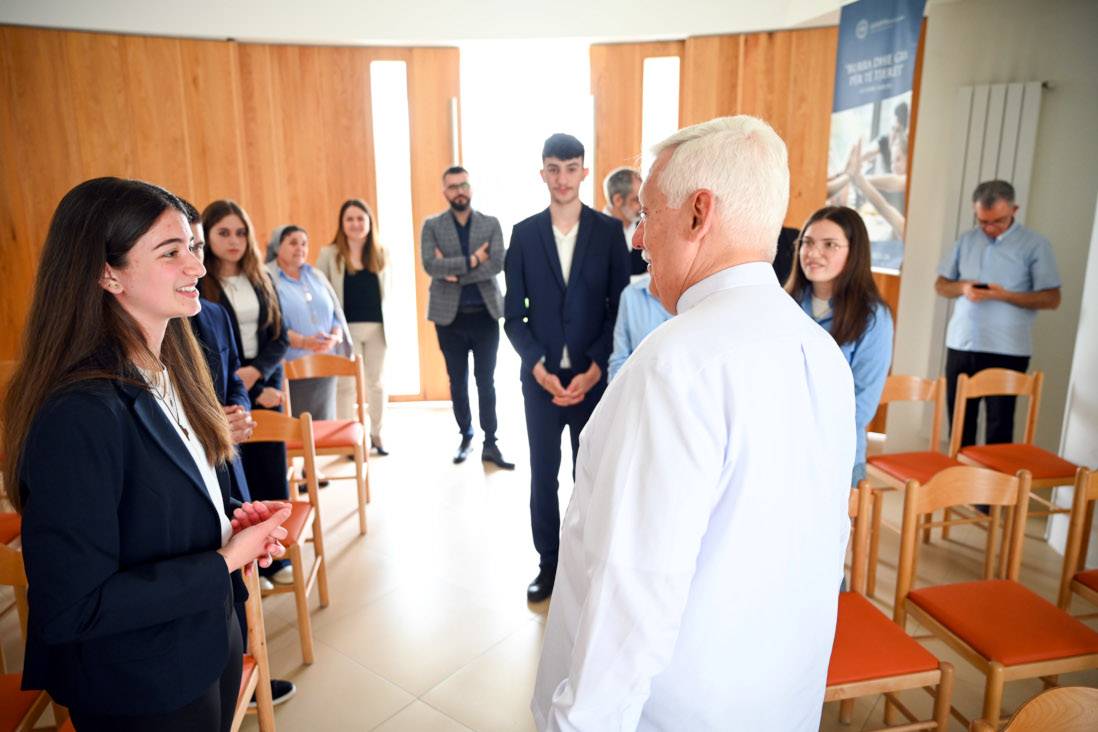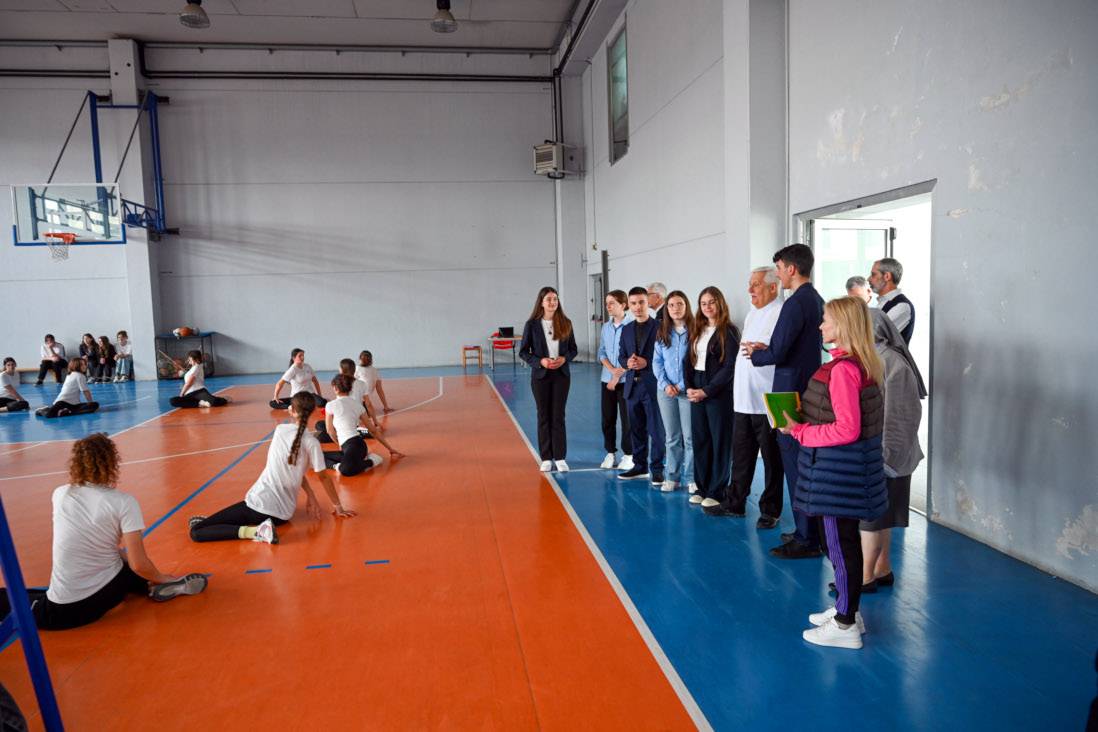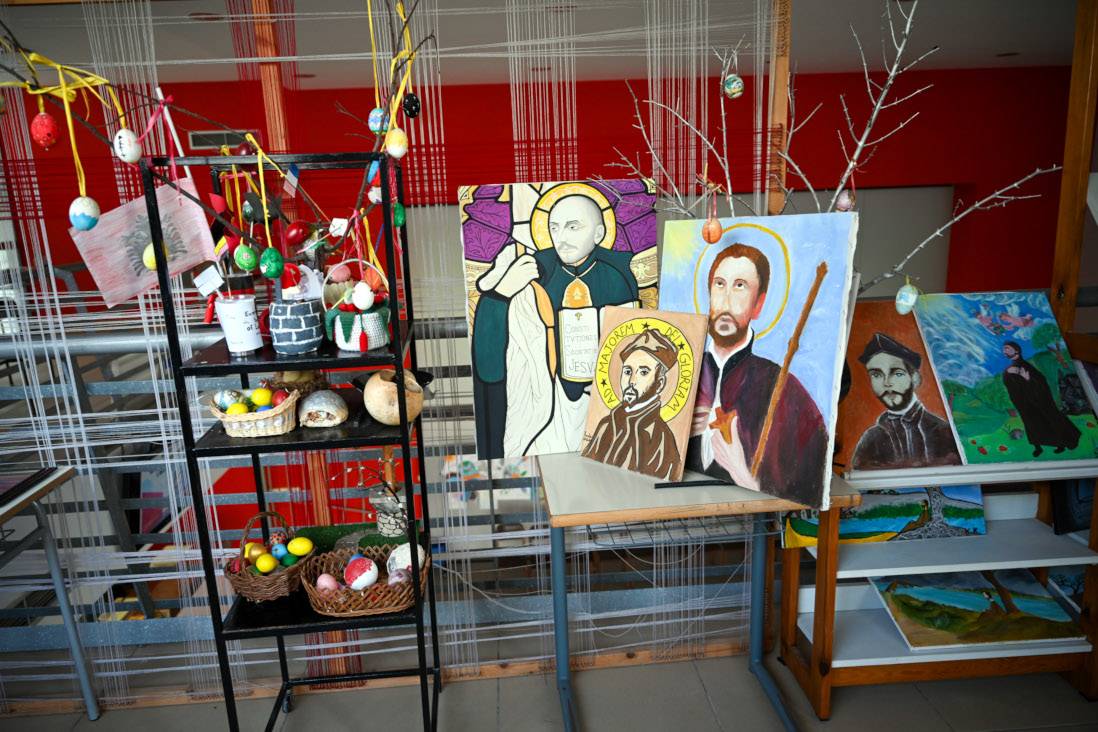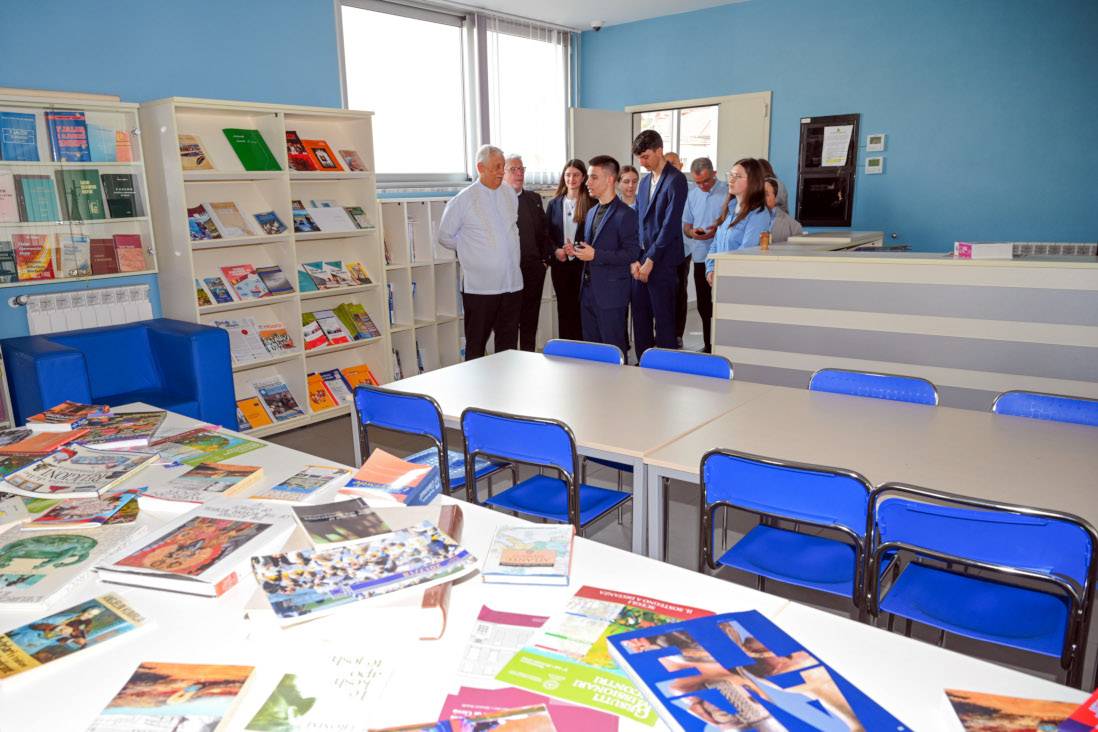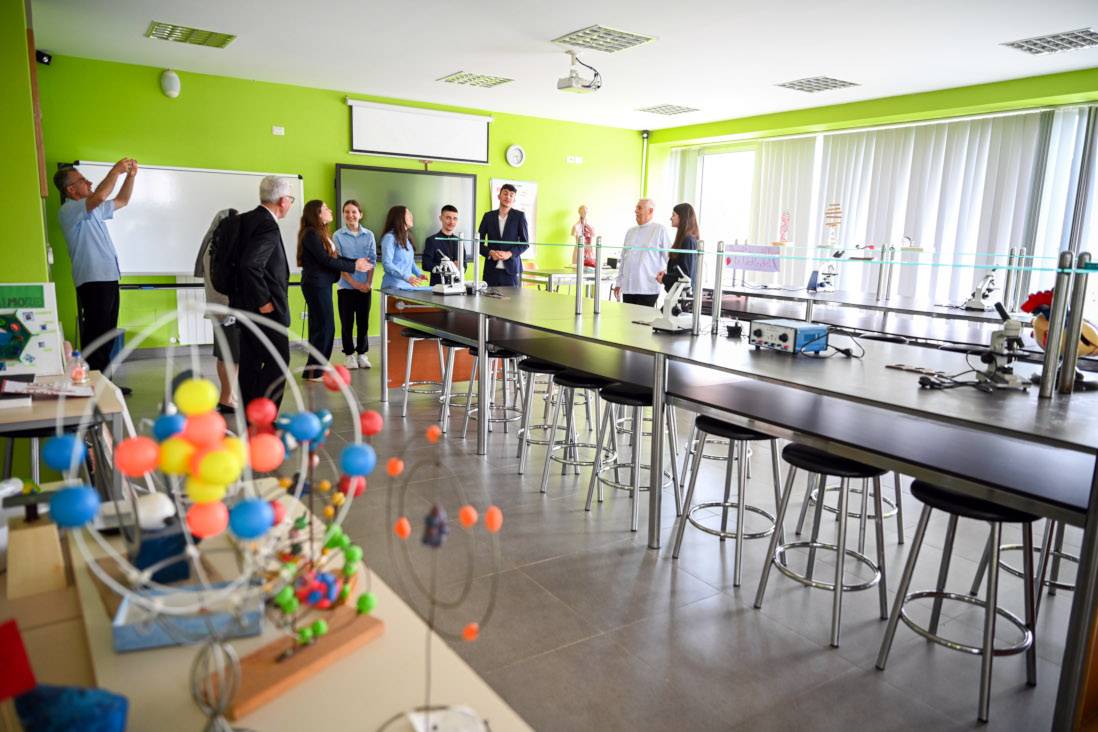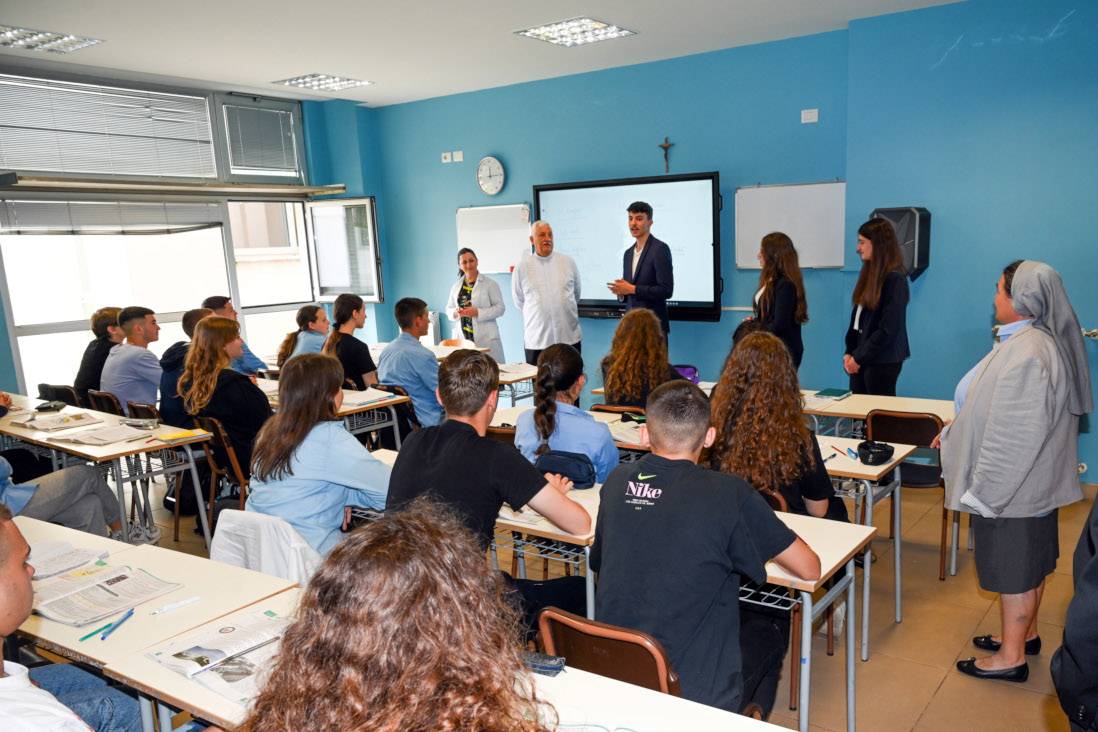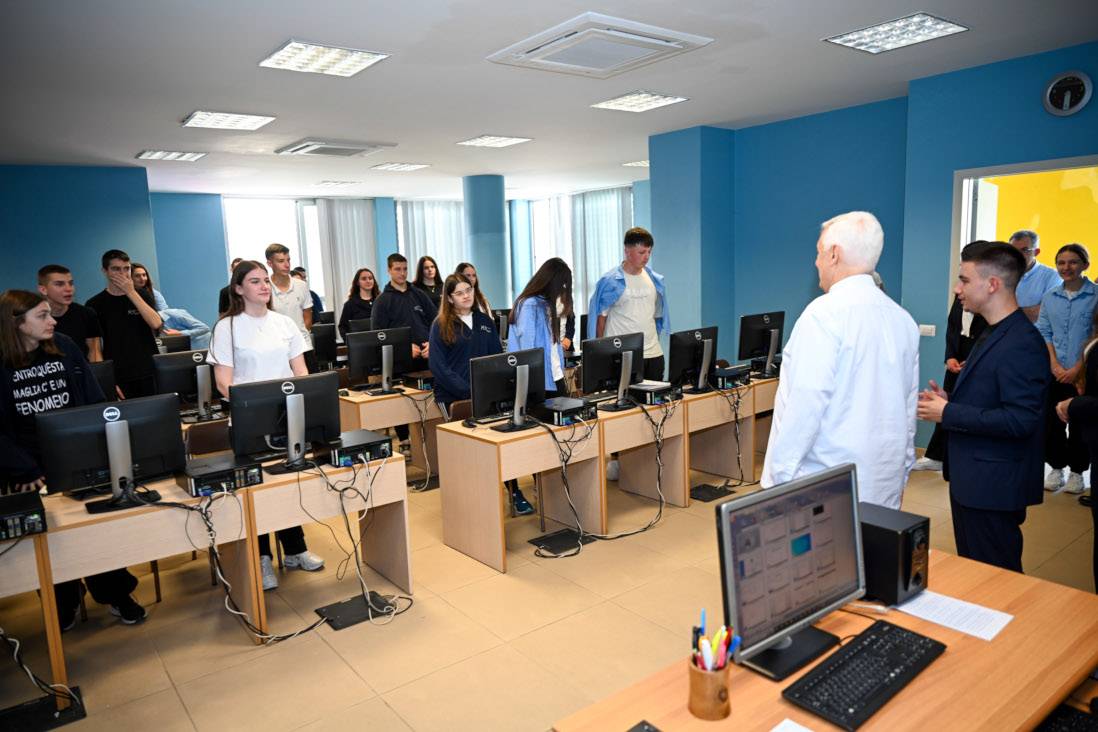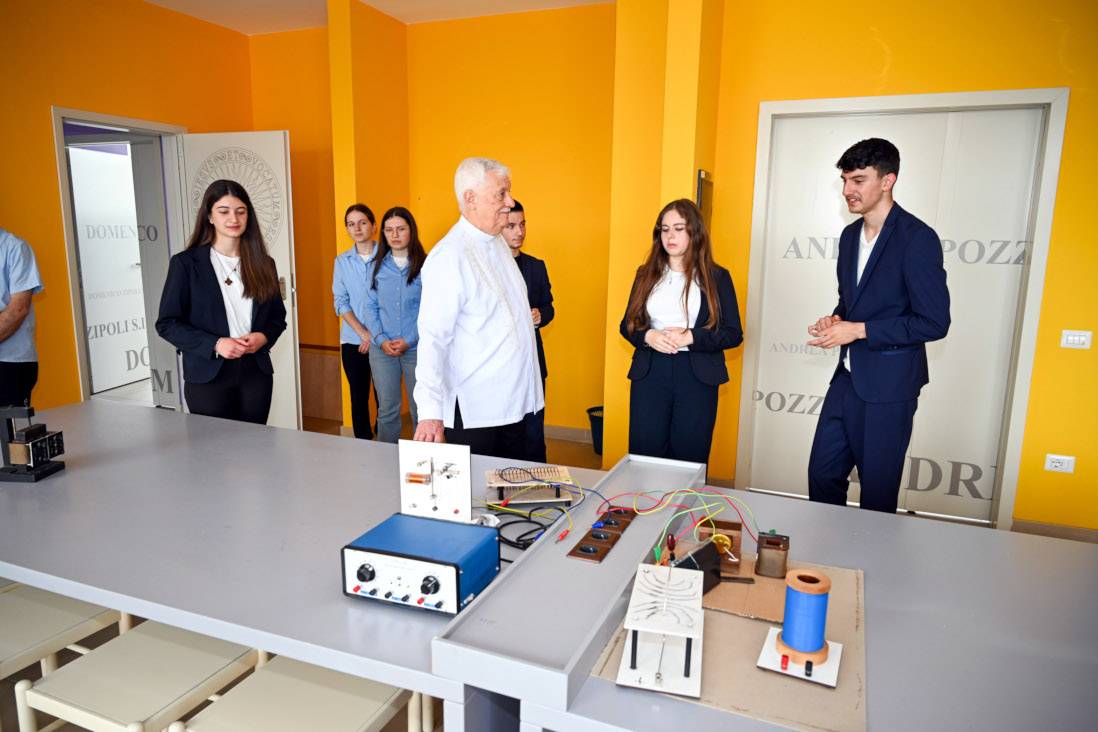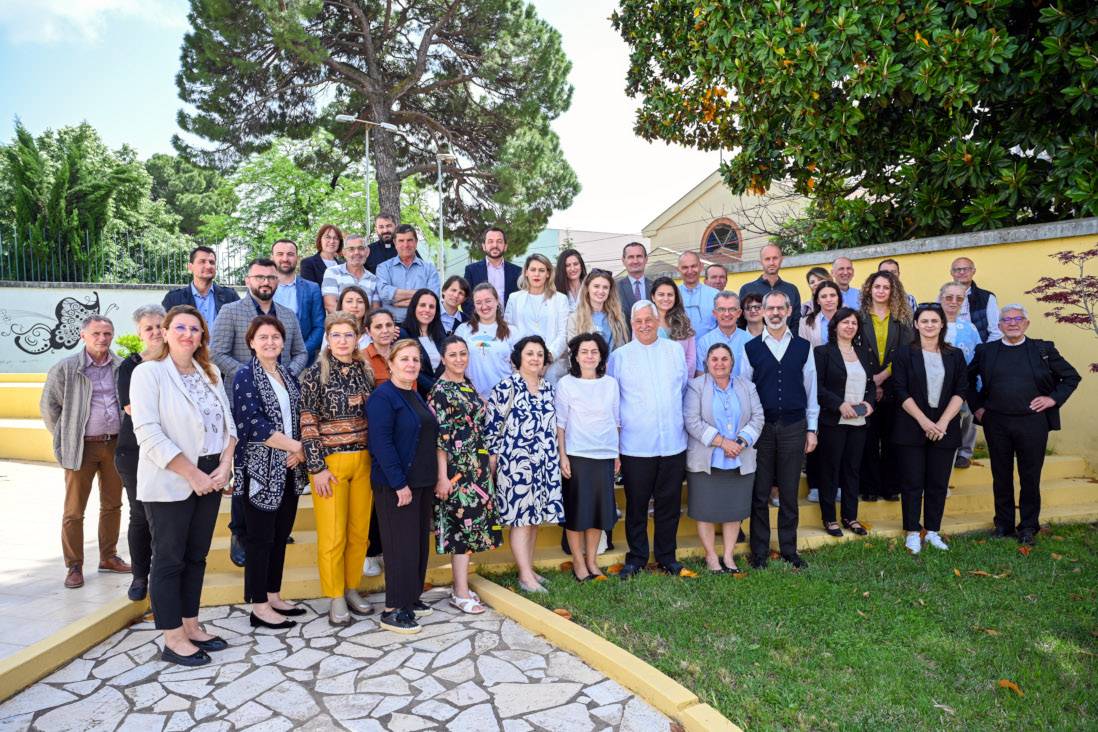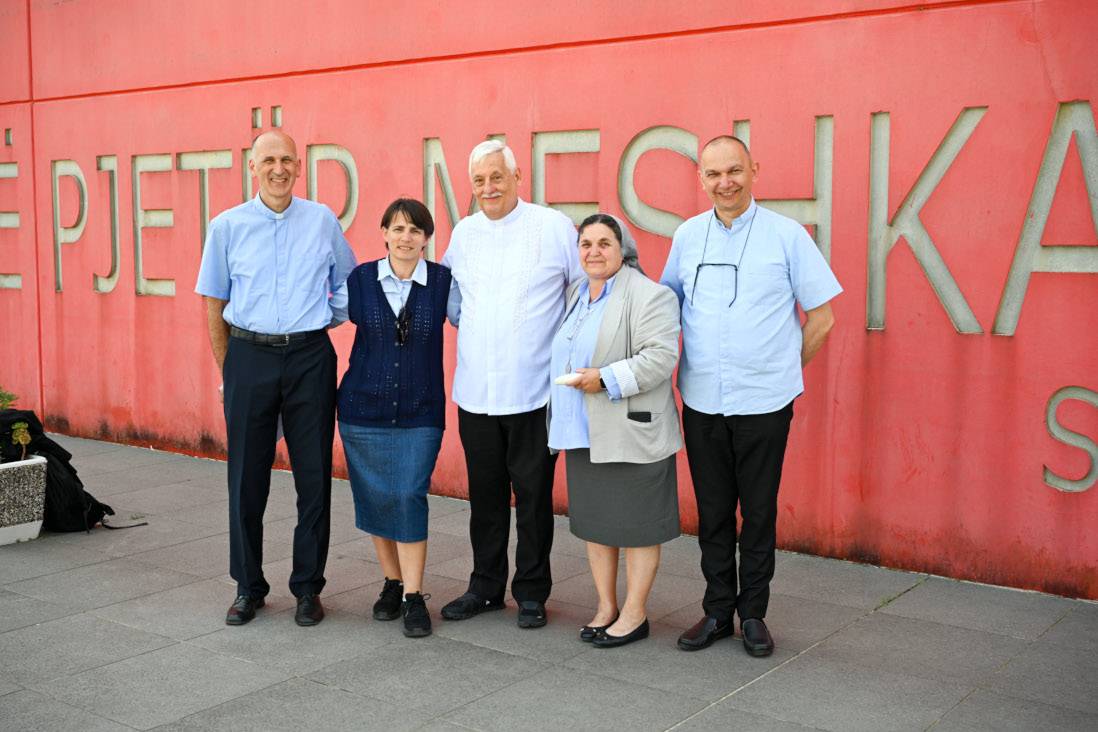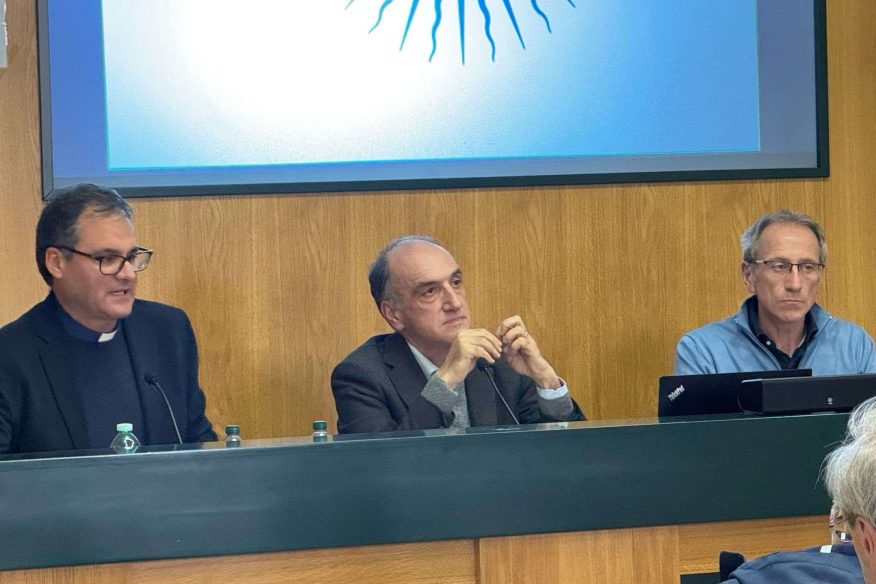P. Sosa at Meshkalla College The memory of Jesuit martyrs
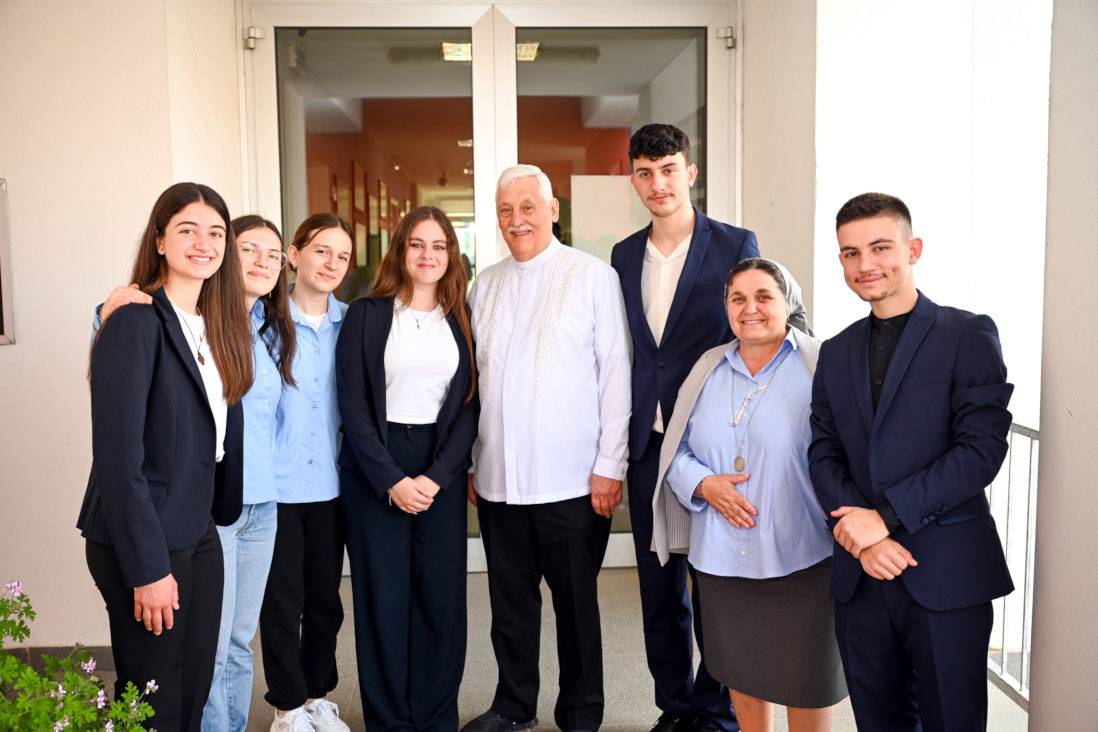
The day began with a visit to the rector of the seminary, Dom Mark Shtjefni, who spoke of the valuable service provided by the Society and the training he had received. This was followed by a welcome to the 400-strong Pjetër Meshkalla College in Shkodra, with the headmistress, Sr Valentina Ndreca, and a delegation of teachers. A delegation of pupils then accompanied Father General, the Assistant and Father Provincial to visit the rooms: the classrooms, the laboratories, the chapel. “Our school is beautiful, spacious, full of light,” stressed Fr Zef Bisha SJ, Superior.
Between past and future
“So many inscriptions tell the story of the past in order to look to the future. On this very spot, exactly in the present chapel, there used to be a flying mission. The fathers lived, worked, studied here and dedicated themselves to the itinerant apostolate, especially in the villages and then returned here”.
This was followed by a meeting with the school board. “The reality of the Institute was highlighted: how the pupils arrive, where we are going, the strengths and those to be worked on, the pastoral work,” explained Fr Bisha. “It is a strongly inclusive school that wants to prepare world citizens.But many emigrate. We face great challenges: how to reach people on a pastoral, human level, how to accompany them through the Exercises, including teachers, what collaboration with other realities? It was a moment to give Father General a greater knowledge of our country’. Fr Sosa’s invitation therefore: to rediscover a synodal style and collaboration with the laity, looking to the future of the educational institution, which is calling to invest more and more in their formation.
A time of change
The meeting with the EYM and the educating community, friends and collaborators. “We are facing important changes,” emphasised Fr Sosa. “Two main ones: the possibility of living peacefully religious plurality and, for the Catholic Church, what the Second Vatican Council proposed, to become a lay church, people of God, founded on baptism. Pope Francis is going in this direction, both within the Church and in dialogue with other religions. We are just at the beginning”. In the dialogue with those present again the call for justice and integral ecology. “We must focus more on humanity than on content. Instead of the law, focus on love, reconciliation. Only then will we have a just world”. On migratory phenomena: “We need to avoid fleeing countries, a complex factor. Things do not change from one day to the next. But one’s conscience can change and Jesuit schools can help. I leave but to return”.
The memory of Jesuit martyrs
In the afternoon, there was a visit to the prison where, with many others, the Jesuit martyrs were imprisoned during the communist regime. Daniel Dajani – the last rector of the College and Seminary – and Gjon Fausti, shot in 1946, and Brother Gjon Pantalija, who died in 1947. A moment of prayer in front of the cell where they were imprisoned and tortured. Then at the cemetery, at the tree where they were tied up and killed. “An intense and profound moment” stressed Fr Bisha. Then the fraternal meeting with Bishop Angelo Massafra and the departure for Tirana.
The Atë Pjetër Meshkalla College
The College educates 400 students, spread over three years of study and five sections. It employs 30 teachers, a technical and administrative staff of 15 and two Jesuits.
The educational system aims to integrate pupils from different social and economic backgrounds, belonging to different cultural and religious traditions. Students learn to respect and cooperate with each other, overcoming the stereotypes that sometimes circulate in their social environment.
The school, together with the other schools of the Jesuit Education Foundation and, more generally, with the other schools of the Jesuit Global Network, has as its goal the holistic formation of its students to become competent, conscious, compassionate and committed persons. To this end, it provides formation programmes for its staff, takes care of the pastoral and spiritual dimension of education as well as the didactic, and encourages the exchange of experiences. The education community of the school adopts an attitude of listening to the initiatives, requests and criticisms of the students and encourages them to take responsibility for their fellow students.
It aims to maintain and develop a safe educational environment through the adoption of safeguarding policies and the active co-operation of teachers, staff, pupils and families together with the Child Protection Official.
Sister Valentina Ndreca has been its director since 2022.
History of St Francis Xavier and Ate Pjeter Meshkalla Colleges
In 1877, at the request of several families, the Jesuits opened the Xaverian College in Shkodra, a commercial school where students from different regions of the Balkans studied, not only Catholics, but also Muslims and Orthodox. The language used for teaching was Italian, but Albanian was also taught.
Teachers and educators were both Jesuits and lay people, often engaged also in scientific research.
Poets, composers, patriots, professors, writers who shaped the cultural identity of the country and many priests, teachers and civil servants, intellectuals and officials, diplomats and politicians and businessmen received their early education at the Xaverian College.
Two years after the opening, the students performed a play for the first time in Albania. For the Jesuits, the theatre is particularly important for the education of young people, but also for stimulating the artistic and cultural life of the city.
The music band, the art studio, the film studio and the football team also started their activities here. A scientific innovation was the Meteorological Observatory. Other cultural and scientific institutions that emerged from the College were the Botanical Museum, the Numismatic Museum, the Astronomical Observatory and the Physics and Chemistry Laboratories, which were unique in Albania at that time. The Jesuit library grew to about 10,000 volumes.
The Xaverian College was closed by the communist regime in 1946. In 1994, in continuity with the Xaverian College, the Jesuits opened the “Father Pjetër Meshkalla” Secondary School, dedicated to an unforgettable Jesuit from Scutari who, through his courageous confrontation with the regime, became a symbol of faith, culture and freedom. The school was initially the Lyceum of the Minor Seminary and was opened to all in 1998. In just a few years, the number of students grew to 400, without distinction of religion or origin.
For about 16 years it was directed by Fr Gaetano Brambillasca, who laid the foundations of the school’s identity. The staff participated in regular Ignatian formation meetings and networked with other colleges in the province learning to understand each other and to work as an educational community. In the 2000s, the Jesuits began the construction of a new school building to replace the grey and dilapidated one built by the state during the regime. The new building was inaugurated in 2012 by the recently deceased Fr Lello Lanzilli, the first Rector of the new school, which at that time was at its peak with around 600 students.
However, the government’s decision to reduce the number of years of secondary education from four to three and a declining population, partly due to continued emigration, have posed a major challenge to the school’s sustainability.
In 2014, the leadership was handed over to Fr Ronny Alessio. With the creation of the Jesuit Education Foundation, a new form of organisation was introduced, with a distinction between an operational level entrusted to the General Director, assisted by a Board of Directors, and a strategic level entrusted to a Board of Administrators. Together with the other colleges of the JEF, the school began to draw up a strategic plan with objectives and means of implementation for the next five years.
The years of Fr. Giangiacomo Ghiglia’s leadership, from 2018 to 2022, were marked by the pandemic. The school took immediate and effective measures to protect the health of the students and to ensure the continuity of education.
In 2022, there was a transition to a religious director, Sister Valentina Ndreca, who faced many internal and external challenges. The school is building on the suggestions given during the JEF‘s monitoring visit in April 2022 to better define the different roles. However, one anomaly of the school remains: for many years it has not had any religious education or even formal lessons on ethics. The administration hopes to find legal ways of overcoming this handicap so that the college can become a school of dialogue.
